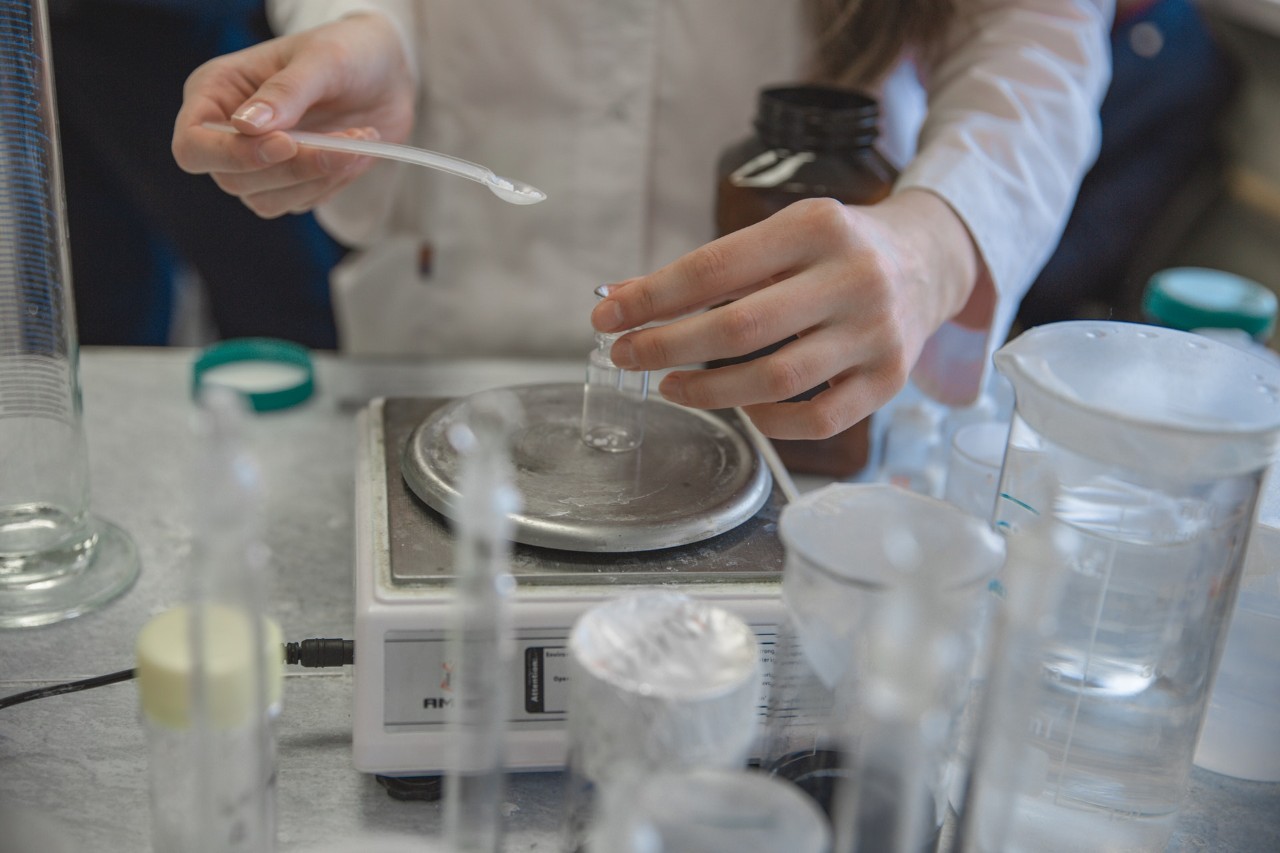
Chemistry PhD candidate recognized with NSF graduate research fellowship
Moriah Weese brings prestigious award to UC for the first time in recent history
University of Cincinnati’s Moriah Weese, a PhD candidate in the College of Arts and Sciences department of Chemistry, has won a highly-competitive National Science Foundation (NSF) graduate research fellowship.

Moriah Weese. Photo/Provided
The award is the oldest graduate fellowship of its kind, recognizing and supporting outstanding graduate students in NSF-supported science, technology, engineering and mathematics disciplines.
Each year NSF receives more than 13,000 applications from 500 academic institutions for approximately 2,000 fellowship offers. The majority of graduate research fellowships are awarded to students at elite universities such as the University of California and the Massachusetts Institute of Technology.
Students can apply for the fellowship before they begin their graduate studies or as an early graduate student. This was Weese’s second time applying. She applied in her senior year of her undergraduate studies and received an Honorable Mention.
“For science to continue to progress, it's essential that we fund students at smaller, less well-known schools, particularly since they typically have less access to funding,” Weese said. “Several of my classmates are planning to apply next year, so hopefully someone will be writing about them next spring!”
It really is a remarkable thing to watch students blossom and reach their full potential
Ashley Ross, UC assistant professor of chemistry
“I was her undergraduate research mentor and now her graduate adviser and it really is a remarkable thing to watch students blossom and reach their full potential,” said Ashley Ross, Weese’s graduate adviser and an assistant professor of chemistry.
“Her winning the GRFP has just further solidified how excellent she really is,” Ross said.
Weese’s research proposal for the fellowship was on Estradiol, the primary form of estrogen, which is known to be released rapidly in parts of the brain, and regulate dopamine. “However, we don't have a way to measure it as it's being released. My proposal was to (research), and work towards measuring it and dopamine together in the brain,” Weese said.
Estradiol is the form of estrogen that is responsible for the maturing and maintenance of the female reproductive system. The body ceases to create Estradiol after menopause. Pharmaceutical Estradiol is used to treat symptoms of menopause as well as prostate and breast cancer.
The fellowship has both short- and long-term ramifications for her life and research, Weese said.
In the short term, it will allow her to focus on her research, rather than teaching.
“And in the long term, the fellowship demonstrates to future employers, funding agencies, and other scientists that I can think scientifically, write grants that get funded, and communicate my science to others well,” she said.
Featured image at top: Photo/Anna/Pexels.
Related Stories
Laboratory safety symposium coming to UC
July 12, 2024
The University of Cincinnati’s College of Arts and Sciences is partnering with the Lab Safety Institute to offer the Safer Science Summit July 22-26. The three-day STEAM Safer Science Summit will of educators and administrators K-12 an opportunity to keep up with the latest on chemical management, laboratory safety, regulatory compliance, hazard identification, legal aspects of safety and much more. Chemistry professor and A&S dean James Mack says the partnership and summit are designed to offer STEAM educators instruction and education about keeping students safe while they perform experiments. “Safety is always first,” Mack says. “We want to make sure our K-12 teachers have the equipment they need to be safe. People can get cut, or lose their sight, and spills can happen, especially when you’re dealing with chemicals.” The Laboratory Safety Institute, a non-profit educational institute, has been providing safety courses and consulting for chemical labs worldwide for the last 40 years. Its courses have been taught to more than 100,000 people in 30 countries, across industries from high-tech to government, and academia to medicine. The event is free, and educators who enroll can receive continuing education credits. Sign up here.
Chemists develop easy test for plant viruses
June 10, 2024
Chemists at the University of Cincinnati are working on a simple way to diagnose viruses in plants before they infect entire crops.
UC hosts ‘Day of Light’ at museum
May 22, 2024
UC will host a Day of Light at the Cincinnati Museum Center's STEM lab from 10 a.m. to 3 p.m. May 25.
